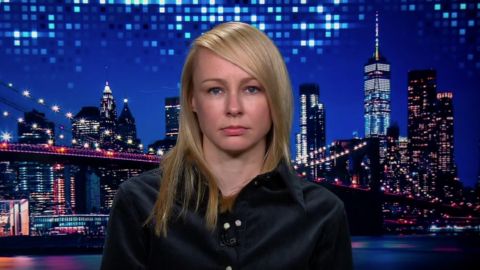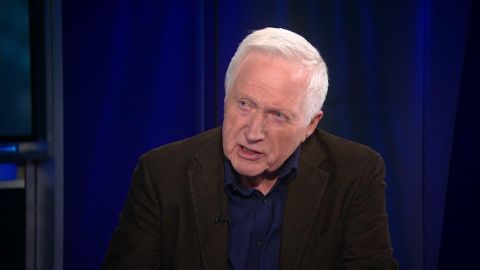Read Transcript EXPAND
AMANPOUR:
So this has got a huge amount of buzz. Your film and you’ve, you’ve taken it on, I think it’s the very first feature film to discuss this particular issue in the wake of me too. In the wake of the sort of now ongoing criminal trial of Harvey Weinstein. What was it that made you want to do this film now? What, what, what sort of triggered your antenna?
KITTY GREEN:
Um, I started off making a film about consent and power on college campuses and I, when the Weinstein story broke, I shifted focus cause I had a lot of friends that worked in the industry and had been, had had experiences that were similar to what I was reading in the press. So I, yeah, I guess I was interesting exploring the broader system and machinery around these men as opposed to kind of really delving into the predators themselves. Well because I think you’ve said, and I think a lot of people said it’s not just Harvey Weinstein and it’s not just the men, it is the entire enabling system and it is across Jack just about every industry. Is that what you found in your interviewing and research for this? For this film? Yes, completely. I mean, if the problem was Harvey Weinstein, it would be fixed already. But so we need to really kind of, I felt like we need to examine it all and like instead of looking at it top down, let’s look at it bottom up, let’s look at why we don’t have enough women kind of entering the film industry in the first place, being promoted from assistant to the next level up or to an executive position. So yeah, I think a thorough investigation is what’s needed. And so that’s where I started.
AMANPOUR:
And we’ll see throughout the film. But there is a sort of a culture of silence, not just manifested in your film, but we know around this problem and for so long women haven’t dared come come forward for all the reasons we know why. But I’m really interested about whether you chose to portray that in your film, which is a very, it’s called a very quiet film. Um, you have music like track only at the beginning and at the very end of the day in which this film on on folds. Was that specifically to connote the silence?
KITTY GREEN:
Definitely. We were, it was, I wanted really to have an authentic day for her, so I didn’t want to fill it with music. I really wanted to fill it with kind of the office sounds, you know, the third 30 copiers and the coffee makers. But definitely the culture of silence. I mean she has a lot of people around her and none of them are talking about what’s going on and yet they all find it a little disconcerting. So that was something, yes, we dive into a lot.
About This Episode EXPAND
Legendary journalist David Dimbleby sits down with Christiane to discuss what the next chapter will look like for the U.K. and the EU following Brexit. Kitty Green, writer and director of “The Assistant,” explains how toxic workplace culture enables predatory behavior. Oscar-nominated director of “The Edge of Democracy” Petra Costa discusses dangers to democracy in Brazil.
LEARN MORE


